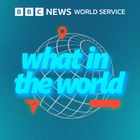
What in the World
Apr 4, 2024
Welcome to the future. There are some people who already live with an implant inside their head. Noland Arbaugh is one of them - he’s paralysed but can now work a computer with his mind.
There could be more people with brain chips if Elon Musk's hopes for his company, Neuralink, come true. He wants humans to merge with artificial intelligence to stop AI from taking over the world. That’s not happening any time soon, but there are lots of questions around how brain implants are used at the moment. How are they helping people? Are they ethical? Could we all have one at some point?
Wired's biotech reporter, Emily Mullin, tells us more about how these brain interface devices work. And neuroethicist Laura Cabrera reflects on the moral implications of these implants.
Email: [email protected] WhatsApp: +44 0330 12 33 22 6 Presenter: Hannah Gelbart Producers: Baldeep Chahal, Benita Barden and Emily Horler Editor: Julia Ross-Roy

